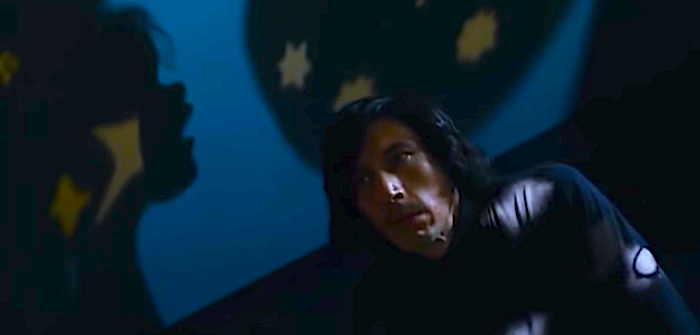The new film by Leos Carax, the winner of Best Director at Cannes Film Festival, is a must-see, but will the audience “miss the joke,” the same way many did for similar satires, like Starship Troopers (Paul Verhoeven, 1997) and Natural Born Killers (Oliver Stone, 1994)?
While the first half of Annette can feel staggering, the second half is everything, narratively and stylistically. Making a satire about cancel culture, media exploitation, herd mentality, public elevation and destruction of celebrities by manufacturing mass consent, and how all of that destroy individuals and the society as a whole, in the middle of the peak of mass psychosis in the American society is a difficult task to take on.
While the first half’s on-the-nose-ness is probably intentional, ridiculing how the media and the public have made this unholy bond that aggressively and transparently have been turning the society into ultimate sheep herds, the second half has a more subtle and magical approach to the whole issue. This might be one of the best musicals as in that the whole sing-along convention of musicals is used for the very plot and themes of the film: that the herd, all, repeat the same talking points, and that you can feed them those talking points with spectacle and exploiting their emotions. The herd doesn’t miss a beat to destroy a person at night whom they willfully cheered for in the morning. All it takes is repetition and exploitation. The very same system that makes people follow a person or mode of mentality manipulates them to destroy that person and mentality.
Not only different people say the same things without thinking whether they truly believe in what they say, but also each individual is reduced to a few talking points, whether to attack others or to defend themselves. A society made up of clones of performative beings, even when it comes to showing their love and hatred, a society deprived of thinking, a society so easily manipulable, inevitably generates and regenerates powerful monsters. Some powerful monsters are visible like Henry so people can target all their absurdly strong love and hatred toward them. And the more powerful monsters who run the spectacles, who manipulate the masses in a systemic way, and exploit their fears and insecurities remain disguised for a population so sedated by the show. Powerful monsters do not exist without a herd, and the herd would not exist without the powerful monsters and a media system that elevate them to a ridiculous and dangerous level. The film condemns the society, the spectacle-based for-profit media, and the dangerous celebrity obsession, all, and shows very well how they all feed each other. Only a sophisticated filmmaker like Leos Carax can make a film like this, even though he very likely dumbed his film down to reach a wider audience with this film.

